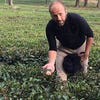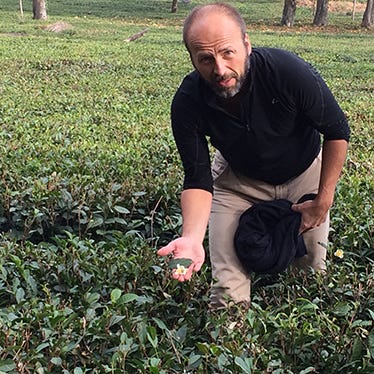The Natural Health Products Research Alliance is looking for botanical brands to help create verification standards for natural health products.

The consumer demand for natural products drives their need for research of products’ botanical ingredients. When developing products in the relatively new natural products industry, transparency, safety and efficacy are key elements to building consumer trust. Though botanicals have been used by people for thousands of years as a source of food and medicine, limited resources are allocated to finding the true identity of many botanicals. Plants, like people, can share similar appearance and traits, but can be different in other ways. When it comes to botanicals used as ingredients in food or medicine, brands must properly identify them, so that they may be certain of their intended interactions and desired efficacy. To date, much of this research has been conducted by academia, which has limited resources.
The Alliance
Transparency within global quality control (QC) systems demands third-party engagement with academicians who provide novel perspectives from cutting-edge research and biotechnology. The University of Guelph, a comprehensive public research university in Guelph, Canada, works with companies that develop and manufacture natural products to help establish The Natural Health Products (NHP) Research Alliance, to create mutually agreed upon standards for ingredient authenticity.
The NHP Research Alliance is a collaborative resource working with the natural products industry and its stakeholders to create verification standards in molecular diagnostic testing including the creation of a global standard biological reference material (RM) DNA and metabolomic libraries for natural health products.
Driven by leading industry partners and researchers, the Alliance uses novel molecular diagnostic tools to tackle major issues in ingredient authentication that challenge the natural health product industry. The Alliance members’ goal is to create tools underpinned by rigorous science to ensure consumers are getting authentic ingredients within the products they seek for a healthy life style.
A Catalyst for Change
The catalyst for this changing industry is a disruptive molecular biotechnology that has been used to reveal adulteration in the supply chain of natural ingredients. The product security solution is to develop this biotechnology as an on-site tool that ensures the species ingredient supply chain is tested at all stages from farmer to supplier, manufacturer, distributor and consumer in a transparent blockchain ledger of validated tests. It is an honest system with positive/negative test results verified by a third-party cloud server linked to vouchered herbarium collections that are curated by University of Guelph NHP Research Alliance scientists.
Technology in Practice
The stakeholders in this initiative include regulatory bodies that ensure rigorous methods through beta testing and multi-lab validated studies. Although it sounds like a futuristic daunting task, the first portable molecular diagnostic tool (Hyris bCUBE) co-developed by the NHP Research Alliance is in a beta version at Herbalife Nutrition and several other leading industry partners. The vision is to have this type of portable molecular biotechnology used on-site throughout the supply chain by industry stakeholders as it is expediting testing from a 10-day turn-around-time to 1 hour with greatly reduced costs for species identity testing.
Next Steps
The alliance has set out to enhance current industry standards with testing protocols that identify chemicals with genomic tests that capture the inherent diversity of life that defines species ingredients. The use of both methods provides a powerful tool for quality assurance (QA) methods that addresses authenticity and quality. However, both tools need to be anchored in vouchered herbarium collections, with DNA RM sequences, and these do not exist for all ingredients, nor are they available for botanical extracts, which are commonly traded in our supply chain of ingredients. In developing an extensive standard biological reference material DNA and metabolomic library for natural ingredients, the Alliance will house thousands of industry-sponsored samples, creating an accurate resource for developing and producing trusted products.
The Alliance is looking for more companies to join the vision for natural ingredients that sustain healthy lifestyles because everyone deserves honest ingredients that match their expectations from labels on our preferred and trusted brands.
As director of the NHP Research Alliance, Steven Newmaster, Ph.D., serves as a catalyst between molecular diagnostic scientific research and industry tools to support quality assurance (QA) in botanicals and probiotic ingredients used in food and natural health products. His mission is to assemble and share knowledge of medicinal plants and to democratize molecular biology so that it is accessible to society-at-large. He leads his research team in constructing a botanical ingredient reference library and the development of a transparent blockchain of DNA identity tests that represents authentic ingredients in the supply chain from producer, supplier, manufacturer, distributor and finally the consumer. The Newmaster lab is located at the University of Guelph at the Biodiversity Institute of Ontario where over 7 million DNA sequences for almost 300,000 species have been assembled in the Barcode of Life Database.
About the Author(s)
You May Also Like






.png?width=800&auto=webp&quality=80&disable=upscale)